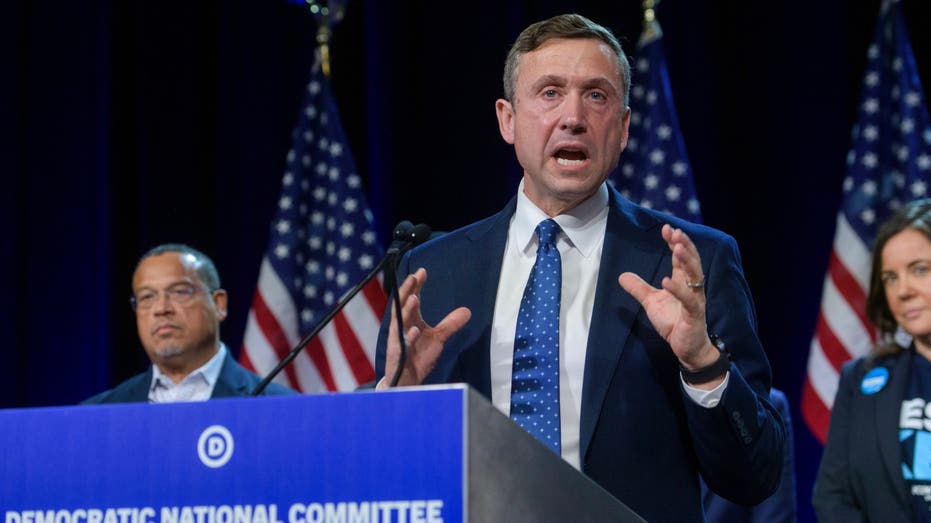DNC Chair Slams David Hogg Over Party Infighting in Leaked Meeting Audio: 'Really Frustrating'
Leaked audio reveals DNC Chair Martin's frustration with Vice Chair Hogg amid rising tensions over his $20 million progressive support plan.

The Democratic National Committee is facing significant internal turmoil as several of its officers accuse DNC vice chair David Hogg of leaking an audio recording that exposes infighting at the highest levels of the party. The controversy centers around a two-minute audio clip from a May 15 Zoom call, where DNC Chair Ken Martin is heard expressing deep frustration over the recent divisions and direct criticism from Hogg, who at just 25 years old has emerged as a vocal progressive reformer. Hogg’s future as vice chair now hangs in the balance, with senior officials calling for his ouster amid mounting pressure.
Hogg, who was elected to his role earlier this year, has been a frequent lightning rod within the party after spearheading plans to channel $20 million in support of progressive, primarily young, candidates seeking to challenge established Democratic incumbents. His efforts have unsettled the party establishment and sparked accusations from leadership of deepening fissures at a time when Democrats are regrouping after their 2024 election loss. In the leaked recording, Martin complained that continued factional fighting was undermining efforts to make a meaningful difference, stating, “The longer we continue this fight, the harder it is for us to actually do what we all want to do, which is make a difference in this country again.”
Several officers present on the call, including fellow vice chair Malcolm Kenyatta, immediately placed blame on Hogg for the leak, publicly questioning both his integrity and motives. Kenyatta, voicing exasperation, said, “For weeks, I’ve pointed out David’s causal relationship with the truth. He proves he has no relationship with integrity if he’s willing to record and leak private conversations.” Jane Kleeb, president of the Association of State Democratic Committees, echoed these sentiments, decrying what she described as “self-serving narratives” and warning that such leaks only serve to erode trust while providing ammunition to Republicans.
The stakes rose higher as news emerged that the DNC will conduct an electronic vote beginning Monday to possibly nullify the February elections of both Hogg and Kenyatta as vice chairs. The move is ostensibly tied to a complaint about gender-balance rules but, according to Hogg, is being used by party elites to sideline him and slow the pace of reform. Hogg, for his part, stopped short of denying his involvement in the leak, instead deflecting attention to the broader political crisis facing Democrats, referencing controversial moves by Donald Trump and warning against “letting Republicans turn us against each other.”
Other top DNC leaders have rallied to Martin’s defense, emphasizing the need to focus on defeating Republicans rather than engaging in internecine warfare. DNC Associate Chair Stuart Applebaum stated, “I have total confidence in [Martin's] leadership. The stakes are so high right now that we can’t afford distractions like the ones that David is creating.” Vice Chair Artie Blanco added that secret recordings only call into question the character of the leaker, not the strategy or resolve of the party chair. Meanwhile, DNC Associate Chair Shasti Conrad lamented the erosion of trust, noting that confidential conversations had been compromised and asking, “How are we able to lead if there is no trust?”
Despite the broad condemnation from party officers, Hogg has called the furor a distraction from the larger mission, urging Democrats not to play into Republican hands. Yet as the DNC prepares for a pivotal vote that could see him lose his position, the episode has laid bare the deep rifts between the party’s establishment and its younger, insurgent wing. Whether Hogg remains in leadership or not, the public airing of grievances signals an ongoing struggle over the future direction—and unity—of the Democratic Party at a critical juncture.




